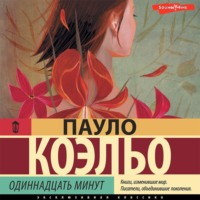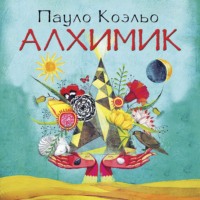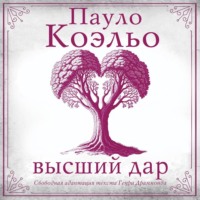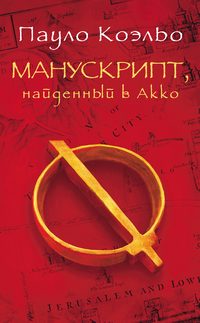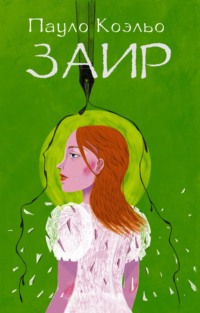
Полная версия
The Witch of Portobello
They finally agreed because they all believed that they knew the unique and definitive version of any event, however insignificant. During the recordings, I saw that things are never absolute; they depend on each individual’s perceptions. And the best way to know who we are is often to find out how others see us.
This doesn’t mean that we should do what others expect us to do, but it helps us to understand ourselves better. I owed it to Athena to recover her story, to write her myth.
Samira R. Khalil, 57, housewife, Athena’s mother
Please, don’t call her Athena. Her real name is Sherine. Sherine Khalil, our much-loved, much-wanted daughter, whom both my husband and I wish we had engendered.
Life, however, had other plans – when fate is very generous with us, there is always a well into which all our dreams can tumble.
We lived in Beirut in the days when everyone considered it the most beautiful city in the Middle East. My husband was a successful industrialist, we married for love, we travelled to Europe every year, we had friends, we were invited to all the important social events, and, once, the President of the United States himself visited my house. Imagine that! Three unforgettable days, during two of which the American secret service scoured every corner of our house (they’d been in the area for more than a month already, taking up strategic positions, renting apartments, disguising themselves as beggars or young lovers). And for one day, or, rather, two hours, we partied. I’ll never forget the look of envy in our friends’ eyes, and the excitement of having our photo taken alongside the most powerful man on the planet.
We had it all, apart from the one thing we wanted most – a child. And so we had nothing.
We tried everything: we made vows and promises, went to places where miracles were guaranteed, we consulted doctors, witchdoctors, took remedies and drank elixirs and magic potions. I had artificial insemination twice and lost the baby both times. On the second occasion, I also lost my left ovary, and after that no doctor was prepared to risk such a venture again.
That was when one of the many friends who knew of our plight suggested the one possible solution: adoption. He said he had contacts in Romania, and that the process wouldn’t take long.
A month later, we got on a plane. Our friend had important business dealings with the dictator who ruled the country at the time, and whose name I now forget (Editor’s note: Nicolae Ceaușescu), and so we managed to avoid the bureaucratic red tape and went straight to an adoption centre in Sibiu, in Transylvania. There we were greeted with coffee, cigarettes, mineral water, and with the paperwork signed and sealed, all we had to do was choose a child.
They took us to a very cold nursery, and I couldn’t imagine how they could leave those poor children in such a place. My first instinct was to adopt them all, to carry them off to Lebanon where there was sun and freedom, but obviously that was a crazy idea. We walked up and down between the cots, listening to the children crying, terrified by the magnitude of the decision we were about to take.
For more than an hour, neither I nor my husband spoke a word. We went out, drank coffee, smoked and then went back in again – and this happened several times. I noticed that the woman in charge of adoptions was growing impatient; she wanted an immediate decision. At that moment, following an instinct I would dare to describe as maternal – as if I’d found a child who should have been mine in this incarnation, but who had come into the world in another woman’s womb – I pointed to one particular baby girl.
The woman advised us to think again. And she’d been so impatient for us to make a decision! But I was sure.
Nevertheless – trying not to hurt my feelings (she thought we had contacts in the upper echelons of the Romanian government) – she whispered to me, so that my husband wouldn’t hear: ‘I know it won’t work out. She’s the daughter of a gipsy.’
I retorted that culture isn’t something that’s transmitted through the genes. The child, who was barely three months old, would be our daughter, brought up according to our customs. She would go to our church, visit our beaches, read books in French, study at the American School in Beirut. Besides, I knew nothing about gipsy culture – and I still know nothing. I only know that they travel a lot, don’t wash very often, aren’t to be trusted, and wear earrings. Legend has it that they kidnap children and carry them off in their caravans, but here, exactly the opposite was happening; they had left a child behind for me to take care of.
The woman tried again to dissuade me, but I was already signing the papers and asking my husband to do the same. On the flight back to Beirut, the world seemed different: God had given me a reason for living, working and fighting in this vale of tears. We now had a child to justify all our efforts.
Sherine grew in wisdom and beauty – I expect all parents say that, but I really do think she was an exceptional child. One afternoon, when she was five, one of my brothers said that, if, in the future, she wanted to work abroad, her name would always betray her origins, and he suggested changing it to one that gave nothing away, like Athena, for example. Now, of course, I know that Athena refers not only to the capital of Greece, but that it is also the name of the Greek goddess of wisdom, intelligence and war.
Perhaps my brother knew not only that, but was aware, too, of the problems an Arab name might bring in the future, for he was very involved in politics, as were all our family, and wanted to protect his niece from the black clouds which he, and only he, could see on the horizon. Most surprising of all was that Sherine liked the sound of the word. That same afternoon, she began referring to herself as Athena and no one could persuade her to do otherwise. To please her, we adopted the nickname too, thinking that it would be a passing fancy.
Can a name affect a person’s life? Time passed, and the name stuck.
From very early on we discovered that she had a strong religious vocation – she spent all her time in the church and knew the gospels by heart; this was at once a blessing and a curse. In a world that was starting to be divided more and more along religious lines, I feared for my daughter’s safety. It was then that Sherine began telling us, as if it were the most natural thing in the world, that she had a series of invisible friends – angels and saints whose images she was accustomed to seeing in the church we attended. All children everywhere have visions, but they usually forget about them after a certain age. They also treat inanimate objects, such as dolls or fluffy tigers, as if they were real. However, I really did feel she was going too far when I picked her up from school one day, and she told me that she’d seen ‘a woman dressed in white, like the Virgin Mary’.
Naturally, I believe in angels. I even believe that the angels speak to little children, but when a child starts seeing visions of grown-ups, that’s another matter. I’ve read about various shepherds and country people who claimed to have seen a woman in white, and how this eventually destroyed their lives, because others sought them out, expecting miracles; then the priests took over, their village became a centre of pilgrimage, and the poor children ended their lives in a convent or a monastery. I was, therefore, very concerned about this story. Sherine was at an age when she should be more concerned with make-up kits, painting her nails, watching soppy TV soaps and children’s programmes. There was something wrong with my daughter, and I consulted an expert.
‘Relax,’ he said.
According to this paediatrician specialising in child psychology – and according to most other doctors in the field – invisible friends are a projection of a child’s dreams and a safe way of helping the child to discover her desires and express her feelings.
‘Yes, but a vision of a woman in white?’
He replied that perhaps Sherine didn’t understand our way of seeing or explaining the world. He suggested that we should gradually begin preparing the ground to tell her that she was adopted. In the paediatrician’s words, the worst thing that could happen would be for her to find out by herself. Then she would begin to doubt everyone, and her behaviour might become unpredictable.
From then on, we changed the way we talked to her. I don’t know how much children remember of what happens to them, but we started trying to show her just how much we loved her and that there was no need for her to take refuge in an imaginary world. She needed to see that her visible universe was as beautiful as it could possibly be, that her parents would protect her from any danger, that Beirut was a lovely city and its beaches full of sun and people. Without ever mentioning ‘the woman in white’, I began spending more time with my daughter; I invited her schoolfriends to come to our house; I seized every opportunity to shower her with affection.
The strategy worked. My husband used to travel a lot, and Sherine always missed him. In the name of love, he resolved to change his way of life a little. Her solitary conversations began to be replaced by games shared by father, mother and daughter.
Everything was going well. Then, one night, she came into our room in tears, saying that she was frightened and that hell was close at hand.
I was alone at home. My husband had had to go away again, and I thought perhaps this was the reason for her despair. But hell? What were they teaching her at school or at church? I decided to go and talk to her teacher the next day.
Sherine, meanwhile, wouldn’t stop crying. I took her over to the window and showed her the Mediterranean outside, lit by the full moon. I told her there were no devils, only stars in the sky and people strolling up and down the boulevard outside our apartment. I told her not to worry, that she needn’t be afraid, but she continued to weep and tremble. After spending almost half an hour trying to calm her, I began to get worried. I begged her to stop; after all, she was no longer a child. I thought perhaps her first period had started and discreetly asked if there was any blood.
‘Yes, lots.’
I got some cotton wool and asked her to lie down so that I could take care of her ‘wound’. It wasn’t important. I would explain tomorrow. However, her period hadn’t started. She cried for a while longer, but she must have been tired, because then she fell asleep.
And the following morning, there was blood.
Four men had been murdered. To me, this was just another of the eternal tribal battles to which my people have become accustomed. To Sherine, it clearly meant nothing, because she didn’t even mention her nightmare.
Meanwhile, from that date onwards, hell came ever closer and it hasn’t gone away since. On that same day, twenty-six Palestinians were killed on a bus, as revenge for the murders. Twenty-four hours later, it was impossible to walk down the street because of shots coming from every angle. The schools closed, Sherine was hurried home by one of her teachers, and the situation went from bad to worse. My husband interrupted his business trip halfway through and came home, where he spent whole days on the phone to his friends in government, but no one said anything that made any sense. Sherine heard the shots outside and my husband’s angry shouts indoors, but, to my surprise, she didn’t say a word. I tried to tell her that it wouldn’t last, that soon we’d be able to go to the beach again, but she would simply look away or ask for a book to read or a record to play. While hell gradually put down roots, Sherine read and listened to music.
But, if you don’t mind, I’d prefer not to dwell on that. I don’t want to think about the threats we received, about who was right, who was guilty and who was innocent. The fact is that, a few months later, if you wanted to cross a particular street, you had to catch a boat across to the island of Cyprus, get on another boat and disembark on the other side of the street.
For nearly a year, we stayed pretty much shut up indoors, always hoping that the situation would improve, always thinking it was a temporary thing, and that the government would take control. One morning, while she was listening to a record on her little portable record-player, Sherine started dancing and saying things like: ‘This is going to last for a long, long time.’
I tried to stop her, but my husband grabbed my arm. I realised that he was listening to what she was saying and taking it seriously. I never understood why, and we’ve never spoken about it since. It’s a kind of taboo between us.
The following day, he began taking unexpected steps, and two weeks later we were on a boat bound for London. Later, we would learn that, although there are no reliable statistics, during those years of civil war about 44,000 people died, 180,000 were wounded, and thousands made homeless. The fighting continued for other reasons, the country was occupied by foreign troops, and the hell continues to this day.
‘It’s going to last for a long, long time,’ said Sherine. Unfortunately, she was right.
Luka’s Jessen-Petersen, 32, engineer, ex-husband
When I first met Athena, she already knew that she was adopted. She was just nineteen and about to have a stand-up fight with a fellow student in the university cafeteria because the fellow student, assuming Athena to be English (white skin, straight hair, eyes that were sometimes green, sometimes grey), had made some insulting remark about the Middle East.
It was the first day of term for these students and they knew nothing about each other. But Athena got up, grabbed the other girl by the collar and started screaming:
‘Racist!’
I saw the look of terror in the girl’s eyes and the look of excitement in the eyes of the other students, eager to see what would happen next. I was in the year above, and I knew exactly what the consequences would be: they would both be hauled up before the vice-chancellor, an official complaint would be made, and that would probably be followed by expulsion from the university and a possible police inquiry into alleged racism, etc. etc. Everyone would lose.
‘Shut up!’ I yelled, without really knowing what I was saying.
I knew neither of the girls. I’m not the saviour of the world and, to be perfectly honest, young people find the occasional fight stimulating, but I couldn’t help myself.
‘Stop it!’ I shouted again at the pretty young woman, who now had the other equally pretty young woman by the throat. She shot me a furious glance. Then, suddenly, something changed. She smiled, although she still had her hands around her colleague’s throat.
‘You forgot to say “please”,’ she said.
Everyone laughed.
‘Stop,’ I asked again. ‘Please.’
She released the other girl and came over to me. All heads turned to watch.
‘You have excellent manners. Do you also have a cigarette?’
I offered her my pack of cigarettes, and we went outside for a smoke. She had gone from outrage to nonchalance, and minutes later she was laughing, discussing the weather and asking if I liked this or that pop group. I heard the bell ringing for class and solemnly ignored the rule I’d been brought up to obey all my life: do your duty. I stayed there chatting, as if there were no university, no fights, no canteens, no wind or cold or sun. There was only that young woman with the grey eyes, saying the most boring and pointless things, but capable, nonetheless, of holding my interest for the rest of my life.
Two hours later, we were having lunch together. Seven hours later, we were in a bar, having supper and drinking whatever our limited budgets allowed us to eat and drink. Our conversations grew ever more profound, and in a short space of time I knew practically everything about her life – Athena recounted details of her childhood and adolescence with no prompting from me. Later, I realised she was the same with everyone, but, that day, I felt like the most important man on the face of the Earth.
She had come to London fleeing the civil war that had broken out in Lebanon. Her father, a Maronite Christian (Editor’s note: a branch of the Catholic Church, which, although it comes under the authority of the Vatican, does not require priests to be celibate and uses both Middle Eastern and Orthodox rituals), had started to receive death threats because he worked for the Lebanese government, but despite this, he couldn’t make up his mind to leave and go into exile. Then Athena, overhearing a phone conversation, decided that it was time she grew up, that she assumed her filial responsibilities and protected those she loved.
She performed a kind of dance and pretended that she’d gone into a trance (she had learned all about this kind of thing at school when she studied the lives of the saints), and started making various pronouncements. I don’t know how a mere child could possibly persuade adults to make decisions based on what she said, but that, according to Athena, was precisely what happened. Her father was very superstitious, and she was convinced that she’d saved the lives of her family.
They arrived here as refugees, but not as beggars. The Lebanese community is scattered all over the world, and her father soon found a way of re-establishing his business, and life went on. Athena was able to study at good schools, she attended dance classes – because dance was her passion – and when she’d finished at secondary school, she chose to take a degree in engineering.
Once they were living in London, her parents invited her out to supper at one of the most expensive restaurants in the city, and explained, very carefully, that she had been adopted. Athena pretended to be surprised, hugged them both, and said that nothing would change their relationship.
The truth was, though, that a friend of the family, in a moment of malice, had called her ‘an ungrateful orphan’ and put her lack of manners down to the fact that she was ‘not her parents’ “real” daughter’. She had hurled an ashtray at him, cutting his face, and then cried for two whole days, after which she quickly got used to the idea that she was adopted. The malicious family friend was left with an unexplained scar and took to saying that he’d been attacked in the street by muggers.
I asked if she would like to go out with me the next day. She told me that she was a virgin, went to church on Sundays, and had no interest in romantic novels – she was more concerned with reading everything she could about the situation in the Middle East.
She was, in short, busy. Very busy.
‘People think that a woman’s only dream is to get married and have children. And given what I’ve told you, you probably think that I’ve suffered a lot in life. It’s not true, and, besides, I’ve been there already. I’ve known other men who wanted to “protect” me from all those tragedies. What they forget is that, from Ancient Greece on, the people who returned from battle were either dead on their shields or stronger, despite or because of their scars. It’s better that way: I’ve lived on a battlefield since I was born, but I’m still alive and I don’t need anyone to protect me.’
She paused.
‘You see how cultured I am?’
‘Oh, very, but when you attack someone weaker than yourself, you make it look as if you really do need protection. You could have ruined your university career right there and then.’
‘You’re right. OK, I accept the invitation.’
We started seeing each other regularly, and the closer I got to her, the more I discovered my own light, because she always encouraged me to give the best of myself. She had never read any books on magic or esoterics. She said they were things of the Devil, and that salvation was only possible through Jesus – end of story. Sometimes, though, she said things that didn’t seem entirely in keeping with the teachings of the Church.
‘Christ surrounded himself with beggars, prostitutes, tax-collectors and fishermen. I think what he meant by this was that the divine spark is in every soul and is never extinguished. When I sit still, or when I’m feeling very agitated, I feel as if I were vibrating along with the whole Universe. And I know things then that I don’t know, as if God were guiding my steps. There are moments when I feel that everything is being revealed to me.’
Then she would correct herself:
‘But that’s wrong.’
Athena always lived between two worlds: what she felt was true and what she had been taught by her faith.
One day, after almost a semester of equations, calculations and structural studies, she announced that she was going to leave university.
‘But you’ve never said anything to me about it!’ I said.
‘I was even afraid of talking about it to myself, but this morning I went to see my hairdresser. She worked day and night so that her daughter could finish her sociology degree. The daughter finally graduated and, after knocking on many doors, found work as a secretary at a cement works. Yet even today, my hairdresser said very proudly: “My daughter’s got a degree.” Most of my parents’ friends and most of my parents’ friends’ children, also have degrees. This doesn’t mean that they’ve managed to find the kind of work they wanted. Not at all; they went to university because someone, at a time when universities seemed important, said that, in order to rise in the world, you had to have a degree. And thus the world was deprived of some excellent gardeners, bakers, antique dealers, sculptors and writers.’
I asked her to give it some more thought before taking such a radical step, but she quoted these lines by Robert Frost:
Two roads diverged in a wood, and I –
I took the one less traveled by,
And that has made all the difference.
The following day, she didn’t turn up for class. At our following meeting, I asked what she was going to do.
‘I’m going to get married and have a baby.’
This wasn’t an ultimatum. I was twenty, she was nineteen, and I thought it was still too early to take on such a commitment.
But Athena was quite serious. And I needed to choose between losing the one thing that really filled my thoughts – my love for that woman – and losing my freedom and all the choices that the future promised me.
To be honest, the decision was easy.
Father Giancarlo Fontana, 72
Of course I was surprised when the couple, both of them much too young, came to the church to arrange the wedding ceremony. I hardly knew Lukás Jessen-Petersen, but that same day I learned that his family – obscure aristocrats from Denmark – were totally opposed to the union. They weren’t just against the marriage, they were against the Church as well.
According to his father – who based himself on frankly unanswerable scientific arguments – the Bible, on which the whole religion is based, wasn’t really a book, but a collage of sixty-six different manuscripts, the real name or identity of whose authors is unknown; he said that almost a thousand years elapsed between the writing of the first book and the last, longer than the time that has elapsed since Columbus discovered America. And no living being on the planet – from monkeys down to parrots – needs ten commandments in order to know how to behave. All that it takes for the world to remain in harmony is for each being to follow the laws of nature.
Naturally, I read the Bible and know a little of its history, but the human beings who wrote it were instruments of Divine Power, and Jesus forged a far stronger bond than the ten commandments: love. Birds and monkeys, or any of God’s creatures, obey their instincts and merely do what they’re programmed to do. In the case of the human being, things are more complicated because we know about love and its traps.
Oh dear, here I am making a sermon, when I should be telling you about my meeting with Athena and Lukás. While I was talking to the young man – and I say talking, because we don’t share the same faith, and I’m not, therefore, bound by the secret of the confessional – I learned that, as well as the household’s general anticlericalism, there was a lot of resistance to Athena because she was a foreigner. I felt like quoting from the Bible, from a part that isn’t a profession of faith, but a call to common sense:


